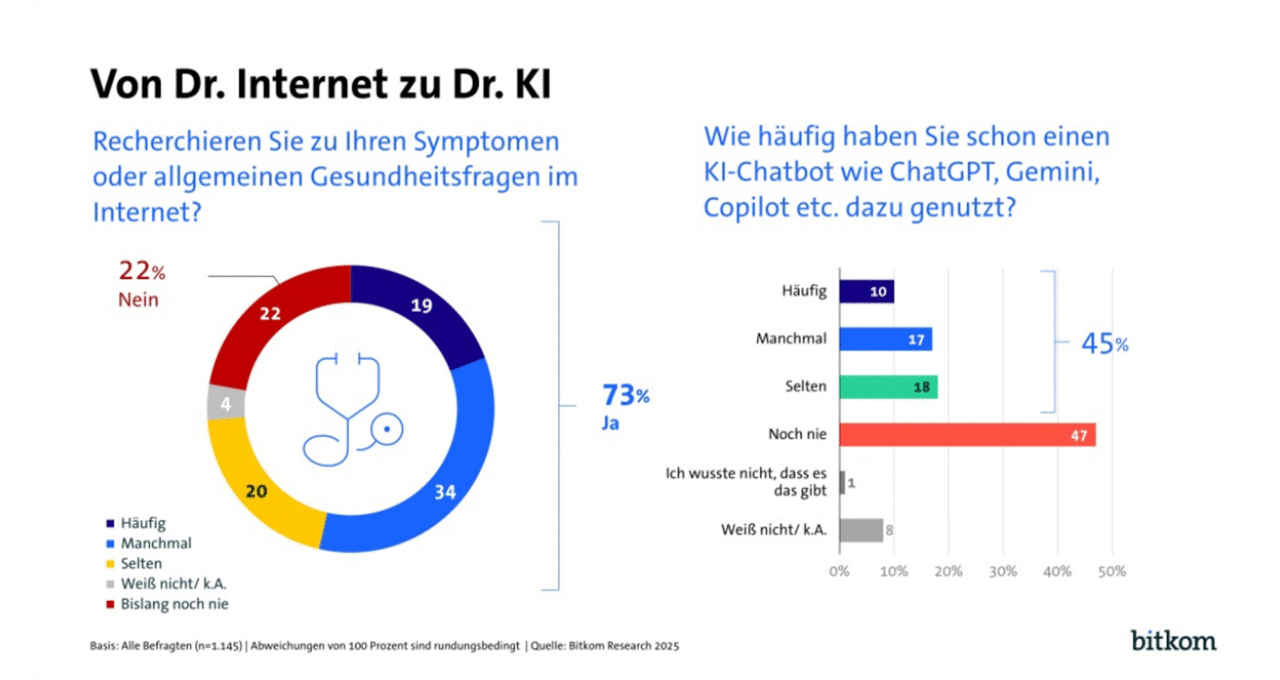
Friday, November 21, 2025
Dr. AI on the Rise: Why More Germans Rely on Medical Chatbots and Why Digital Health Must Accelerate
Artificial intelligence has already become a medical advisor for many people in Germany. According to a new study by the digital association Bitkom, 45 percent of citizens now turn to chatbots such as ChatGPT, Gemini, or Copilot to assess symptoms or clarify health-related questions. One in ten relies on these digital assistants regularly. More than half trust the answers provided by AI, and 50 percent say they understand their symptoms better with the help of chatbots than through traditional online searches.
At the same time, the study shows that the majority of Germans view the use of AI in healthcare positively. In total, 71 percent are open to the technology. People particularly appreciate AI support in diagnostics, therapy recommendations, and obtaining second opinions. Many also see strong value in early disease detection, medical image analysis, and administrative tasks in medical practices.
Despite these benefits, concerns remain significant. Seventy-one percent fear data misuse, 69 percent worry about reduced human interaction in medical care, and more than half fear wrong decisions made by AI. About one-third admit that AI in medicine makes them uneasy. Respondents emphasize the importance of transparency, data protection, and patient safety.
Beyond AI, digital health apps are becoming increasingly important. Three out of four smartphone users already rely on fitness, nutrition, or health-data apps. Many report tangible benefits such as improved fitness, increased motivation, or optimized training. At the same time, some users feel pressured by these applications.
Another major pillar of digital healthcare is the electronic patient record (ePA). Since January 2025, it has been provided automatically through an opt-out system. Sixty-two percent of respondents plan to use their personal digital access. Many recognize clear advantages, such as fewer duplicate diagnoses, better information availability, and more active engagement with their own health data. Yet for many, the access process remains complicated, and substantial informational needs remain.
The Bitkom study makes one thing clear: support for healthcare digitalization in Germany is strong. Eighty-eight percent of respondents view digitalization as necessary, and 80 percent are calling for significantly faster progress. Experts argue that innovation-friendly policies, faster approval processes, better communication, and simpler digital access are essential. Only then can AI-assisted diagnostics, interconnected digital records, and modern health services ease the burden on the system and strengthen long-term healthcare delivery.







